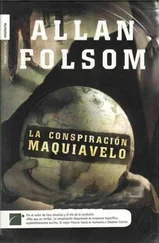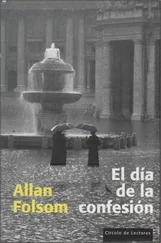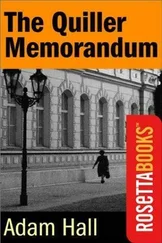Once more the call rang through. Once more he listened as it rang four times. He was expecting the recording to click on once again when instead a male voice answered.
“Yes?” came a grumble in German.
“My name is Marten, Nicholas Marten. I’m trying to reach-”
“You’ve got him,” Theo Haas said sharply in English.
“I would like to meet with you. Could I come to your apartment?”
“Across from the Tiergarten. Platz der Republik. The grassy park in front of the Reichstag. Five o’clock. I’m an old man in a green cap and carrying a walking stick. I’ll be sitting on a park bench near Scheidemannstrasse. If you’re not there by ten minutes past I will leave.”
There was an abrupt click as he hung up and the phone went dead.
“Well,” Marten said out loud and with relief. At least no one else had gotten to him. Not yet anyway.
PLATZ DER REPUBLIK. 4:45 P.M.
Marten came into the park early, determined not to miss Haas through some happenstance beyond his control. In front of him the Platz der Republik sprawled for nearly a quarter of a mile and was filled with seemingly hundreds of people taking advantage of a warm early-summer afternoon. To his right was the massive edifice that was the historic Reichstag, Germany’s parliament building. He vaguely remembered that it had been burned down, purportedly by the Nazis in 1933, and was then rebuilt and reoccupied by the parliament in 1999 as a symbol of German unity following the Cold War. The words carved above its main facade in 1916 had been restored as well-DEM DEUTSCHEN VOLKE (“To the German people”). Maybe the historical significance of it was something Haas was trying to impress on Marten and the reason he chose to meet in its shadow. Or maybe it had no meaning at all. What was curious was why he had chosen to meet outdoors in public rather than in the privacy of his home, especially when he knew that what Marten had to tell him concerned his brother. He was known for being a “character,” and so maybe it was a whim, or maybe he simply didn’t want strangers in his home.
4:50 P.M.
Marten reached the far end of the park and turned back, staying close to the pathway that ran near Scheidemannstrasse. He looked carefully at every bench he passed, most of which were occupied, and then beyond them to the crowd in the park and what suddenly seemed like the impossible chore of sorting through them to find an old man in a green cap with a walking stick.
4:55 P.M.
He arrived at the Reichstag building and turned back, retracing his steps. Still no green cap, no old man with a walking stick.
4:57 P.M.
He stopped at the far end of the park and once again turned back. What if Haas didn’t show up? All he could do was call him and hope to hell he answered and that someone else hadn’t gotten to him in the meantime. It made him think of the ten-minute timetable Haas had given him. Why had he done that? Once again he wondered why the old man had insisted they meet in a place as public and crowded as this. Maybe it was simply that he felt safer meeting a stranger that way, especially in view of what had happened to his brother in Bioko. Still, a quiet restaurant or café would have accomplished the same thing.
Again Marten looked around. Still nothing. Then from the corner of his eye he saw a taxi suddenly turn out of traffic on Scheidemannstrasse and pull to the curb. A moment passed, and the rear passenger door opened and an old man in a green cap carrying a walking stick got out. He closed the door with a ferocious bang and started into the park and toward a nearby bench. It was exactly five o’clock. Theo Haas had arrived.
Anne Tidrow had been a good twenty yards behind Marten when he entered the park. She stayed with him until he reached the far end and turned back. At that point she stepped behind a group of chattering tourists and waited to see where he would go next.
She’d followed him to the Platz der Republik by cab, watching him turn the corner from Friedrichstrasse onto the boulevard Unter den Linden and walk several more city blocks until he reached the historic Brandenburg Gate. There, he’d turned right and then left before crossing into the park in front of the Reichstag. It was then she’d left the cab and pursued him on foot.
Her Lufthansa flight from Paris had touched down in Berlin a little more than an hour after his. Immediately she’d called her “past lives, fond memories, old friends” contact and learned that he’d taken a cab to the Hotel Mozart Superior and checked in, and that very soon afterward a private investigator had taken up residence in the lobby, carefully watching the comings and goings of people who passed through it.
Twenty-five minutes later she’d checked into the nearby Hotel Adlon Kempinski, keeping a taxi at hire just outside. After a little more than three nail-biting hours and numerous cell phone exchanges with the private investigator in the Mozart Superior’s lobby, he called to tell her that Marten had just left his key at the front desk and was on his way out. Seconds later he reported that he was following him up Friedrichstrasse toward Unter den Linden.
In less than three minutes-wearing dark glasses, her hair pulled back, and dressed as a tourist in jeans, athletic shoes, and a stylish denim jacket-she was in the hired cab rushing in that direction, concerned all the while that the investigator would lose him if he suddenly hailed a passing taxi himself. And then she’d seen him, just as he turned the corner and started down Unter den Linden.
She was now less than thirty yards away watching Marten approach an old man in a green cap with a walking stick who had just seated himself on a park bench. She saw Marten reach him and say something, then watch as the elderly gentleman studied him carefully before gesturing for Marten to sit down. She slowed, then stopped behind two boys kicking a soccer ball back and forth between them. She wanted to move closer in the hope of overhearing what was being said, but then determined it was too risky and stayed where she was. At this point the last thing she needed was for Marten to look up and recognize her.
How long she stood there watching she didn’t know. All around her was activity-the boys with the soccer ball, children at a birthday party chasing each other, people flying kites in the light wind, dogs scampering after tossed Frisbees, lovers walking hand in hand oblivious to the world around them. Others, many still in business clothes who looked as if they’d left work early for nothing more than to enjoy the late-afternoon sun, lounged on benches or lay sprawled in the grass.
Suddenly, not twenty feet from the bench where Marten and the old man sat talking, there was a loud explosion of firecrackers, thirty or forty or more going off at once. People cried out in surprise. Startled children shrieked. Dogs barked. Even Marten reacted, jumping from the bench and staring in the direction of the explosions. In the next instant horror struck. A young, curly-haired man in a black sweater appeared from nowhere and went to the old man on the bench. A knife flashed in his hand. A second later he dragged it across the old man’s throat, stared at his work for a heartbeat, then ran off toward Scheidemannstrasse.
Marten saw the assailant just as a woman screamed. In an instant he was at the old man’s side. He lifted his slumped head, held it gently, then slowly set it back down and raced off after the curly-haired attacker. In three steps he was at the curb. Then, dodging traffic, he darted hazardously across Scheidemannstrasse, and chased after him at a dead run heading toward the Brandenburg Gate.
5:16 P.M.
5:18 P.M.
Marten could see him forty yards ahead nearing the Brandenburg Gate. As he reached it he glanced back, and Marten saw his face clearly. It was young and thin, with wild narrow-set eyes under that great shock of black curly hair. Who was he? Why had he wanted to kill Theo Haas? And so viciously and in public? Had he been sent by Conor White? Or by the Equatorial Guinean army? Had he trailed him from his apartment? Did it mean someone already had the photographs and Haas knew it, and knew who they were, and they wanted him silenced quickly, before he told someone? If so, why hadn’t he tried to kill Marten, too?
Читать дальше












